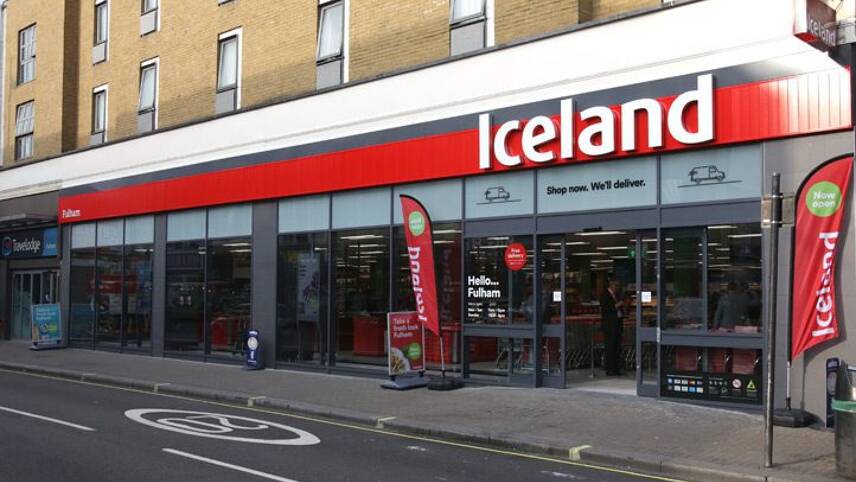Register for free and continue reading
Join our growing army of changemakers and get unlimited access to our premium content

Iceland is launching a national rollout of a successful trial that gave store colleagues the option to take surplus food home from stores at the end of the day. Image: Iceland/Webershandwick
Iceland has today (21 May) published its first food waste report following industry calls from WRAP to “target, measure and act” on food waste. The retailer has confirmed that food waste has been reduced by almost 2,500 tonnes over a two-year period, equivalent to 23.2%.
The retailer has committed to target 12.3 of the Sustainable Development Goals (SDGs), which aims to halve food waste by 2030. Iceland is aiming to achieve this target across its operations.
To do so, Iceland is launching a national rollout of a successful trial that gave store colleagues the option to take surplus food home from stores at the end of the day. These items could either be used at home by staff or donated to a local charity of their choice. Following a 100-store trial, Iceland is expanding this initiative over the coming months to almost 1,000 stores.
Iceland’s managing director Richard Walker said: “Tackling food waste is high on our agenda as one of our many commitments to reduce our impact on the environment. We’ve worked with communities, colleagues and customers to make significant reductions and I am delighted that we have been able to make great strides in reducing our food waste footprint over the past two years.
“We’re continuing to innovate and find new ways to reduce the amount of food wasted across our operations, and our trial to give food to our colleagues is just one of the next steps we’ll be taking to build on our progress so far. I’m looking forward to seeing this in action across our stores and working with colleagues to take the next steps in our food waste reduction journey.”
Over the last year, Iceland has sold more than 1.3 million tonnes of food, sending zero food to landfill. Iceland either donates surplus food to local communities or converts it to animal feed or energy through anaerobic digestion. The retailer has donated more than 150 tonnes of surplus food.
Iceland also continues to champion the food waste reduction benefits of frozen food, enabling households to reduce the amount of waste they produce at home.
WRAP’s Peter Maddox added: “I am delighted by the progress Iceland has made to reduce its operational food waste so significantly over the last two years. These are impressive results, and we welcome the company’s commitment to halve its operational food waste in line with UN goals. Publicly reporting shows a long-term commitment to tackling food waste in an efficient and transparent way, and we encourage all food businesses to adopt this approach.
“As both a Courtauld 2025 signatory and an active participant in the UK Food Waste Reduction Roadmap, Iceland is also helping its customers cut waste in the home, and is an advocate of managing food surplus.”
WRAP posted an update to the roadmap last Autumn, revealing that, at the time, 156 businesses from the food manufacture, retail, hospitality and service sub-sectors had given their support to the initiative.
Businesses in this coalition recorded a collective annual turnover of £220bn in 2018 – more than half of the turnover recorded across the UK’s national food sector. They also generated around 1.1 million tonnes of food waste in their own operations last year, which WRAP claims is equivalent to one-third of the UK’s total post-farm gate supply chain food waste.
WRAP estimates that Roadmap signatories have collectively mitigated the wastage of 53,000 tonnes of food, valued at £85m, over the past 12 months.
Plastics phase-out
Iceland is still focusing on the phase-out of unnecessary plastics alongside its food waste efforts.
In March, Iceland posted an update to its commitment to remove all plastics from own-label product packaging by 2023, revealing that it now uses 29% less plastics in these applications than it did in 2018.
Iceland is notably working with campaign group A Plastic Planet to communicate its plastics progress. A Plastic Planet’s “plastic-free trust mark” logo now features on several popular Iceland products and has also been adopted by the likes of tea brand Teapigs and Dutch supermarket chain Ekoplaza.
Iceland has been trialling methods to reduce single-use plastics from packaging. A pilot of 38 plastic-free and low-plastic packaging for fruit and vegetable lines was launched in January at Iceland stores Greater London and the South East, for example, after several previous innovations – including paper bands for banana bunches – failed to deliver life-cycle benefits in trials. Other projects being tested by the retailer include in-store reverse vending machines for drinks bottles and a plastic-bag-free store.
Matt Mace


Please login or Register to leave a comment.